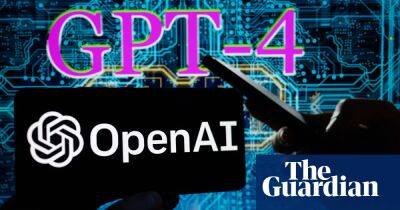Panic not. ChatGPT will help you write better but won’t take your job – yet
A rtificial intelligence is getting everyone excited. It’s going to end or improve the world, depending on your optimism/pessimism. The latest hullabaloo was triggered by the release of ChatGPT – the progression of so called generative AI, which doesn’t just analyse data but actually creates new content (in this case written text).
There’s been lots of speculation of what this might mean for education (the end of coursework?), but my focus is on the implications for the labour market. Now the first serious research on that front has arrived. Economists conducted an online experiment that saw about 450 professionals complete a writing task of the kind they’d do in their day job, with only some having access to ChatGPT to assist them.
Let’s start with the good news. Those who had help completed the task 37% faster and produced better quality output (as assessed by humans who didn’t know who’d had AI support). The paper also challenges the fashion for saying any new technology will always increase inequality – ChatGPT raised the quality of outputs of lower-ability workers most.
The research did raise “AI will take out jobs concerns”, because it mainly substituted for human effort rather than allowing workers to use existing skills to produce better outputs. And workers understood the danger – those using ChatGPT were more worried afterwards about AI replacing employees.
But don’t panic just yet. The researchers found few professionals adopted ChatGPT in their day jobs after the experiment. Why? Because when it came to writing in real jobs, firm-specific or time-sensitive knowledge is required that AI — trained on broad and older information — can’t provide. So AI might speed our work up but maybe we humans aren’t quite
Read more on theguardian.com














